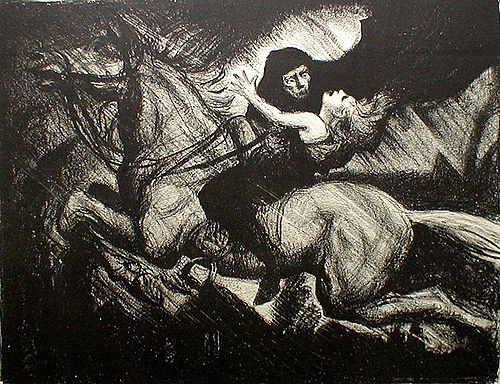Elfnoun
(Norse mythology) A luminous spirit presiding over nature and fertility and dwelling in the world of Álfheim (Elfland). Compare angel, nymph, fairy.
Elfnoun
Any from a race of mythical, supernatural beings resembling but seen as distinct from human beings. They are usually delicate-featured and skilled in magic or spellcrafting; sometimes depicted as clashing with dwarves, especially in modern fantasy literature.
Elfnoun
(fantasy) Any of the magical, typically forest-guarding races bearing some similarities to the Norse álfar (through Tolkien's Eldar).
Elfnoun
A very diminutive person; a dwarf.
Elfverb
To twist into elflocks (of hair); to mat.
Elfnoun
An imaginary supernatural being, commonly a little sprite, much like a fairy; a mythological diminutive spirit, supposed to haunt hills and wild places, and generally represented as delighting in mischievous tricks.
Elfnoun
A very diminutive person; a dwarf.
Elfverb
To entangle mischievously, as an elf might do.
Elfnoun
(folklore) fairies that are somewhat mischievous
Elfnoun
below 3 kilohertz
Elf
An elf (plural: elves) is a type of humanoid supernatural being in Germanic mythology and folklore (especially North Germanic mythology and folklore). In medieval Germanic-speaking cultures, elves generally seem to have been thought of as beings with magical powers and supernatural beauty, ambivalent towards everyday people and capable of either helping or hindering them.
Impnoun
A young or inferior devil; a malevolent supernatural creature, similar to a demon but smaller and less powerful.
Impnoun
A mischievous child.
Impnoun
A baby Tasmanian devil.
Impnoun
(obsolete) A young shoot of a plant, tree etc.
Impnoun
(obsolete) A scion, offspring; a child.
Impnoun
Something added to, or united with, another, to lengthen it out or repair it, such as an addition to a beehive; a feather inserted in a broken wing of a bird; or a length of twisted hair in a fishing line.
Impverb
(obsolete) To plant or engraft.
Impverb
(archaic) To graft, implant; to set or fix.
Impverb
(falconry) To engraft (feathers) into a bird's wing.
Impverb
To eke out, strengthen, enlarge.
Impnoun
A shoot; a scion; a bud; a slip; a graft.
Impnoun
An offspring; progeny; child; scion.
Impnoun
A young or inferior devil; a little, malignant spirit; a puny demon; a contemptible evil worker.
Impnoun
Something added to, or united with, another, to lengthen it out or repair it, - as, an addition to a beehive; a feather inserted in a broken wing of a bird; a length of twisted hair in a fishing line.
Impverb
To graft; to insert as a scion.
Impverb
To graft with new feathers, as a wing; to splice a broken feather.
Impnoun
(folklore) fairies that are somewhat mischievous
Impnoun
one who is playfully mischievous
Imp
An imp is a European mythological being similar to a fairy or demon, frequently described in folklore and superstition. The word may perhaps derive from the term ympe, used to denote a young grafted tree.


















